WASHINGTON – Argentine expats from across the Washington metropolitan area will head to the Argentine Embassy on Sunday to vote in their nation’s presidential election.
The vote comes in the midst of a severe economic crisis in Argentina as the country suffers from over 100% annual inflation and nearly 40% of its population lives in poverty.
“What I’m hearing from people there now, is that the current crisis is probably the worst they remember…with the currency losing value on a daily basis. The economic situation is critical,” Gabriel Fur, 40, of Washington, told Capital News Service. A senior associate at an international bank and originally from Buenos Aires, Fur is one of thousands of Argentines eligible to vote on Sunday.
Nearly 451,200 Argentines who live abroad are eligible to vote, according to the Embassy of Argentina’s website. In the United States, about 90,000 are eligible, according to the Cámara Nacional Electoral, the governmental agency that conducts elections. Voting is mandatory for Argentine citizens between the ages of 18 and 70.
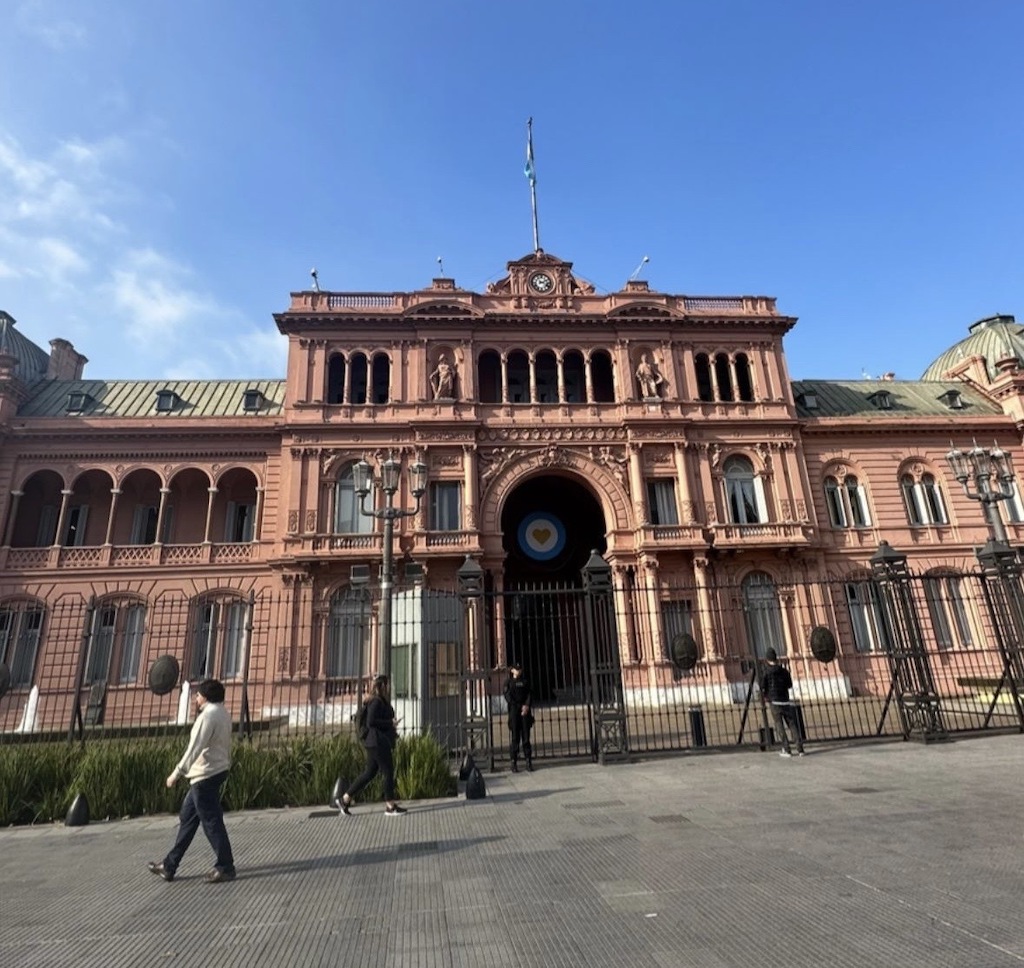
Fur is one of many Argentines who call themselves “economic migrants” – those who moved abroad to seek better economic opportunities.
“Argentina has been in an economic crisis, on and off, for decades now, so this is not new. We are very resilient people who know how to navigate during a crisis,” Fur said.
Argentina has suffered through decades of economic instability, most notably in 2001, when the country defaulted on its external debt, leading to a severe recession and riots. This year, the Argentine peso was devalued to a record low of one U.S. dollar equalling 1,000 pesos on the black market, according to Bloomberg.
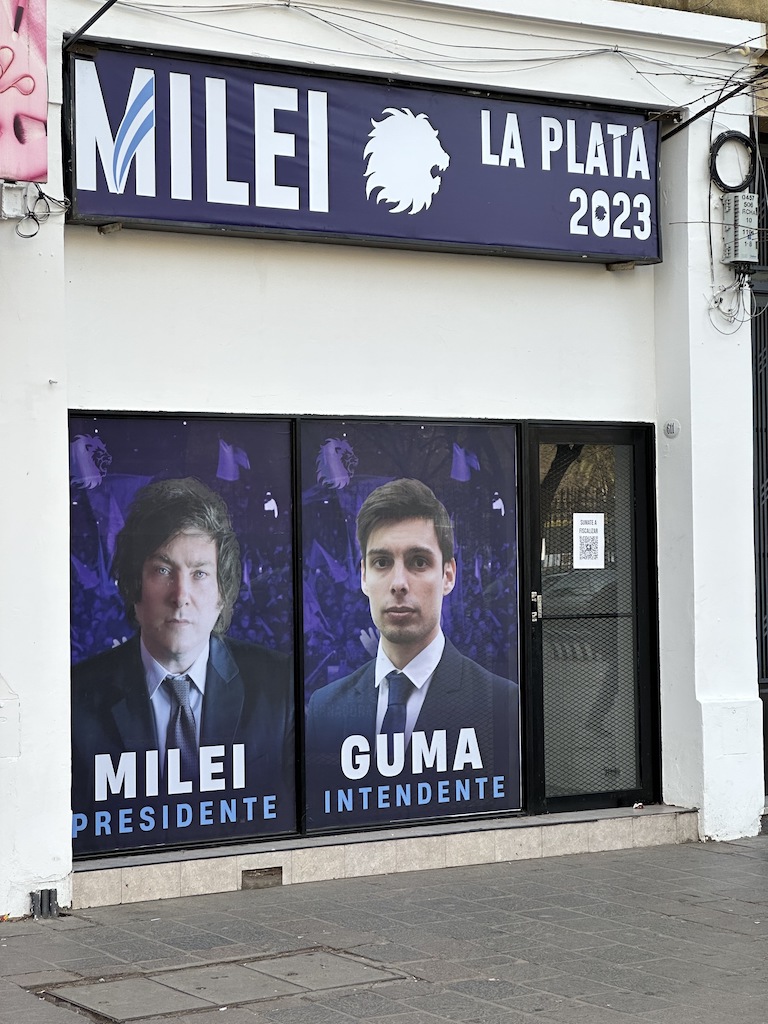
For the thousands of Argentines expats, this shared history and economic anxiety has impacted their political views.
Argentines elect a president every four years, with political parties holding primary elections to choose candidates. Primary elections are “open and simultaneous,” which means any voter may vote for any candidate.
The results of the Aug. 13 primaries shocked many.
Far-right libertarian economist Javier Milei, an admirer of former President Donald Trump, won 30% of the vote, the most of any candidate in a 27-candidate field. His win signifies that Argentines have grown tired of mainstream political coalitions, according to analysts.
Milei is opposed by center-right former Security Minister Patricia Bullrich and current Peronist Minister of the Economy Sergio Massa. Bullrich is running on a platform to reduce taxes, fight corruption, and reduce currency controls. Massa is running a campaign to give higher salaries to workers to combat inflation and create a common currency with regional economies like Brazil.
Two more candidates are also running: left-wing socialist Myriam Bregman, of the Frente de Izquierda y de Trabajadores – Unidad coalition, and centrist Juan Schiaretti of the Hacemos por Nuestro País coalition. Both are only polling around 3 to 4% in the latest polls.
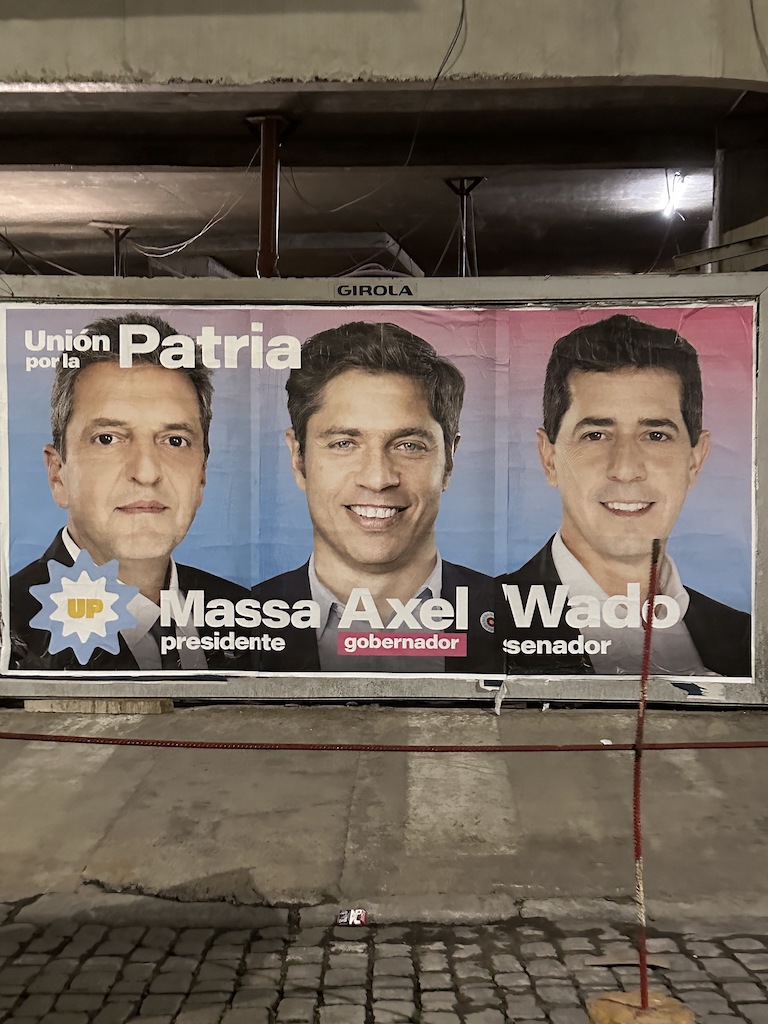
To be elected president, a candidate must either win 40% of the vote and be ten points ahead of the nearest competitor, or win 45%. According to the latest polls, all five of the main candidates are below 40%, so a second-round run-off will most likely be held in late November.
Milei is a member of the Argentine Congress who rose to fame in recent years over his far-right and controversial statements. He founded his own party, La Libertad Avanza.
Milei has said he plans to up-end the traditional system of politics, promising that as president he would abolish the central bank, replace the Argentine peso with the U.S. dollar, get rid of comprehensive sex education in schools, and repeal legislation that legalized abortion.
Milei also embraces far-right political leaders and ideologies, calling his alignment with former President Donald Trump and former Brazilian President Jair Bolsonaro “almost natural.”
At a presidential debate earlier this month, Milei espoused debunked historical revisionism by denying that less than 30,000 people disappeared under Argentina’s military dictatorship from 1976 to 1983.
Such views have alarmed some voters.
“About Milei, I feel I’m really against him. He’s someone that does not represent my values and the values of everybody that I know in Argentina,” said Washington resident “Sebastian.” The 50-year-old school teacher did not want his last name to be used in this story due to political polarization in Argentina that is so deep it is called “La grieta” (the chasm).
Sebastian is an economic migrant who left Argentina over 20 years ago.
He sees parallels between Trump and Milei. “He is a polarizing radical candidate similar to what we see in Bolsonaro, Trump, Orban – a populist,” Sebastian said.
For other Argentine expats, Milei’s rise was seen as predictable.

“There is a segment of the population that it’s very upset with the political system…The segment of the population, mostly people below 40, find Milei as the way to express disappointment with the political system,” said Dr. Sebastian Galiani, professor of economics at the University of Maryland.
Galiani was Argentina’s deputy finance minister in the administration of former center-right President Mauricio Macri. Galiani blames the current government’s poor economic performance for Milei’s rise, but doesn’t see Milei’s proposals as realistic.
“It’s very unclear how he (Milei) can govern,” Galiani said. “He’s not going to have any congressmen, no senators, no governors. So he’s going to be an extremely weak president.”
Galiani was referring to provincial elections that pick governors and legislators also taking place this year. So far, Milei’s party has not won any governorships and few provincial legislature seats. Argentines will also elect 137 out of 257 members of Congress, and it is unclear if Milei’s party will win any seats.
Like many in his party, Galiani is supporting the center-right coalition, Juntos por el Cambio, and its candidate, Bullrich. Her coalition won the abroad vote in the last election in 2019 and Galiani thinks it will do the same again this year.
Fur also backs Bullrich, calling her “the most rational of the main candidates.”
“She was Macri’s secretary of security, and she did a great job there, fighting narcos and mafias,” he said.
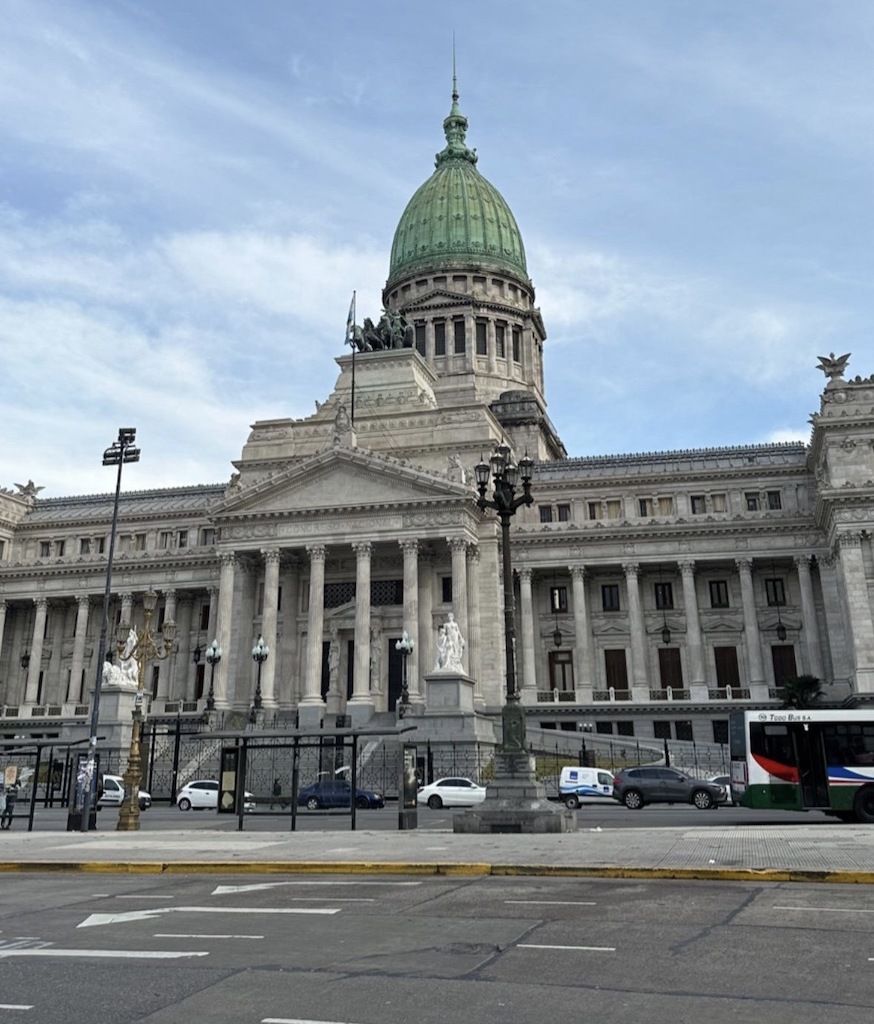
However, Bullrich’s controversial past as a former member of a left-wing guerilla organization known as “the Montoneros” in the 1970s and her subsequent ideological turn from left-wing to the hard-right have left some expat voters uneasy. “I don’t necessarily agree with how Bullrich is surrounded, ‘that law and order’ message,” Sebastian said.
“I may not agree with her, but she has experience in governing, and I think that she could do a good job,” he added.
One theme emerged among expat voters interviewed: their dislike of the ruling Peronist coalition, Union por la Patria.
Peronism is a political ideology named after former Argentine President Juan Peron who governed Argentina from 1946 to 1955, and again from 1973 to 1974, and his wife, Eva Duarte, or “Evita” as she was known. Political scientists find it difficult to define Peronism, but it has elements of liberalism and conservatism, and populism and nationalism. The current Peronist coalition includes parties ranging from center to left-wing.
Peronist coalitions have ruled Argentina for 15 of the last 20 years. Many people see them as responsible for the current economic situation and widespread government corruption. Vice President Cristina Fernández de Kirchner was convicted last year for corruption when she was president from 2007 to 2015. She is still allowed to serve as vice president as her case goes through appeal.
Incumbent Peronist President Alberto Fernández is so unpopular that he opted not to run for reelection. Massa is the Peronist candidate in this year’s election.
“His (Massa’s) management has been terrible. He took office in August 2022, and in a bit over a year he has tripled the exchange rate,” said Fur. Others shared his opinions.
“I don’t like Massa. But I don’t like the other parties either,” said “Malena,” 26, who until September had worked for two years as an au pair in Chevy Chase, Maryland. She is from Santiago Del Estero province in northern Argentina. Like Sebastian, Malena asked not to be identified by her real name because she said she is afraid to discuss politics openly due to political corruption in her hometown.
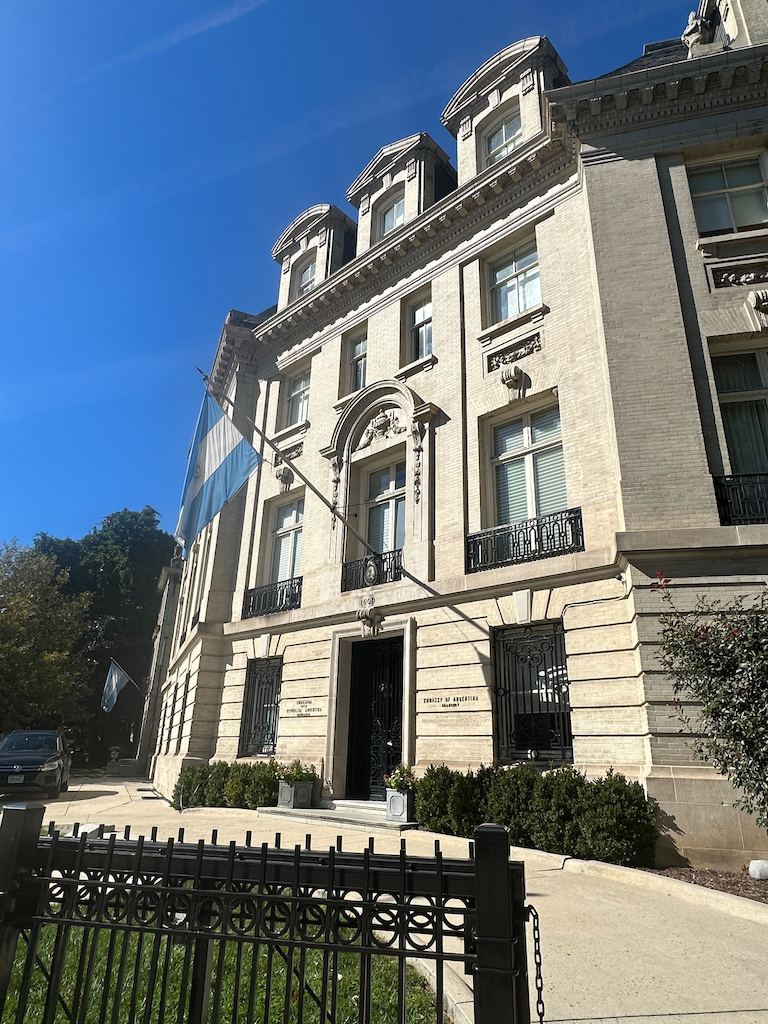
“In my city, a lot of people work for the government,” Malena explained. “The elections are secret. You’re allowed to not say who you are voting for, but they (the government) can know if their employees are voting for them or not. So if they discover you didn’t vote for them, the next day you’re fired.”
Ferreyra returned home to Argentina in late September. Before she left, she told CNS: “It’s a very hard situation. I really want to go back. But I think my quality of life is going to be bad. And it’s sad, you know?”
She is among the nearly 30% of Argentines who said in an Oct. 12 poll that they are either undecided or considering voting “blank” on their ballot, an option citizens have if they don’t want to vote for any candidate.
However, Malena said she is willing to give candidates with radical platforms a second look: “For example, Milei, well, we can give him a taste because it can’t get any worse. He is terrible and we’ve heard a lot of bad things about him but he is a radical change. Maybe let’s give him a chance.”
She also said she is very worried about the state of her country: “I’m very scared. I’m very concerned, I don’t like any of the candidates and I think most of the people in Argentina think the same.”
Sebastian shared her concerns.
“I’m afraid that intolerance, those factions of society, that will get power and I’m afraid that everything that we achieved in social progress in Argentina…I’m afraid they will reverse.”
—
Ryan Mercado, a reporter with the Washington bureau of Capital News Service, spent this past summer in Buenos Aires learning Spanish and doing research. He covered the Aug. 13 Argentine presidential primary elections, publishing a story about voters’ opinions in the run-up to the balloting.

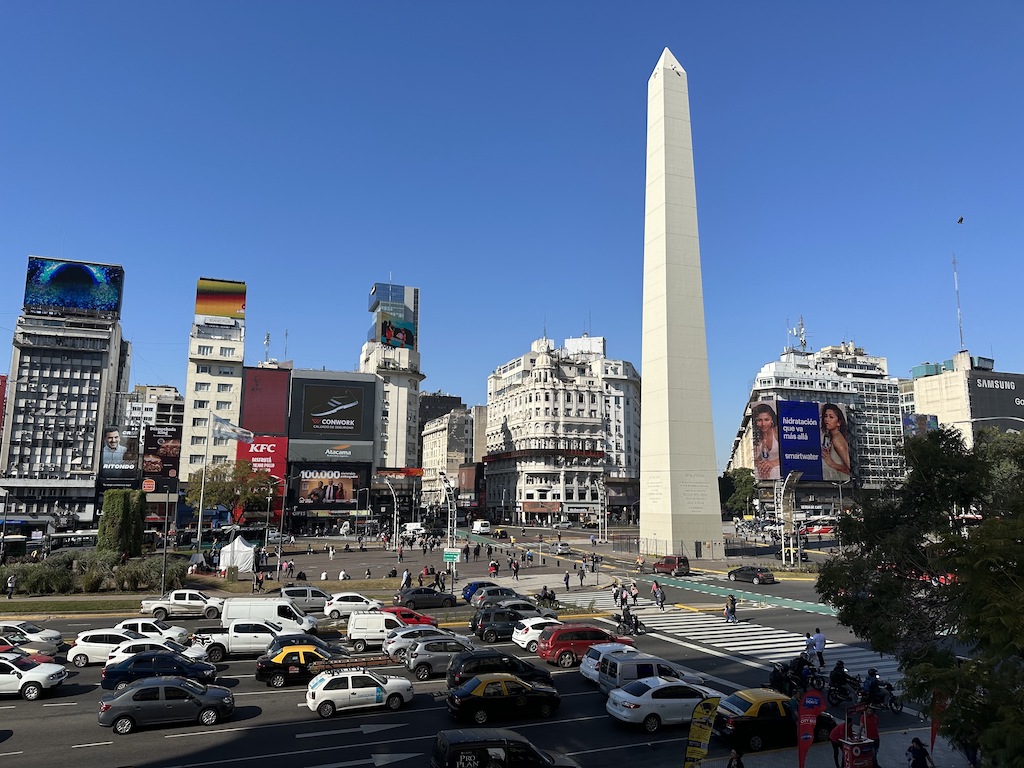
You must be logged in to post a comment.